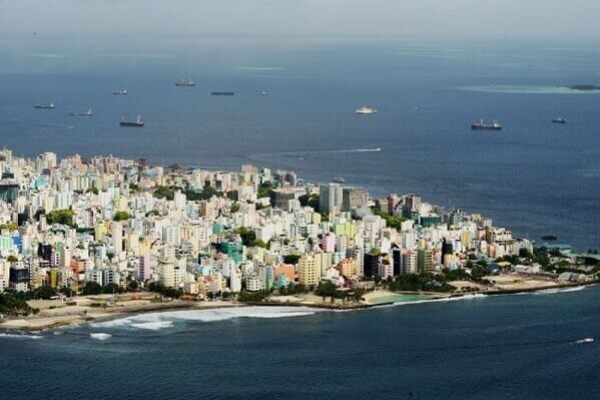India ‘deeply dismayed’ as Maldives ignores advice on emergency

New Delhi: India, which has being trying to persuade Maldives to restore democracy, has reacted sharply against President Abdulla Yameen’s decision to extend emergency in the island nation by 30 more days. The Ministry of External Affairs in a statement said: “We are deeply dismayed that the Government of Maldives has extended the State of Emergency for a further 30 days.
The manner in which the extension of the State of Emergency was approved by the Majlis in contravention of the Constitution of Maldives is also a matter of concern.” Maldives President Abdulla Yameen has overlooked repeated appeals from India urging him to roll back the emergency provisions imposed early February; the last one made just a few hours before he announced the 30-day extension. New Delhi stressed that the extension of emergency would lead to consequent delay in the resumption of the political process and the continuing suspension of the functioning of democratic institutions including the judiciary is likely to further delay restoration of normalcy in Maldives.
Maldives President Yameen on Tuesday extended a draconian state of emergency by another month, bolstering his grip on power in the troubled Indian Ocean island nation. President Yameen has initially imposed 15 days emergency on February 5, curtailing the powers of the judiciary and the legislature after the country's Supreme Court ordered the release of a group of Opposition leaders, who had been convicted in widely criticised trials. Among them was exiled ex-president Mohamed Nasheed. The court had also reinstated 12 members unseated from the parliament last July for floor-crossing.
According to a Reuters report, Maldives prosecutor general Aishath Bisham had told police that the extended state of emergency was unconstitutional. There has, however, been no word from the police on this communication. President Yameen had earlier removed two police chiefs who had refused to follow his directions. President Yameen's soldiers had responded by storming the Supreme Court and charging the country's two senior judges and former President Maumoon Abdul Gayoom with bribery. Since then, the remaining judges of the top court have, one by one, surrendered their power to decide cases individuals and struck down provisions of the February 1 Supreme Court verdict that had triggered the crisis for President Yameen.






















Comments